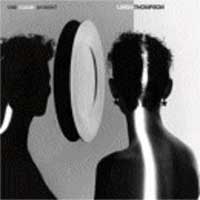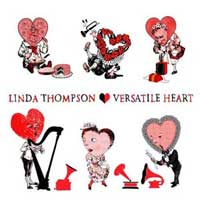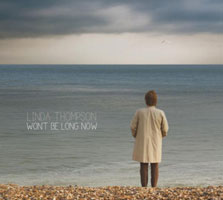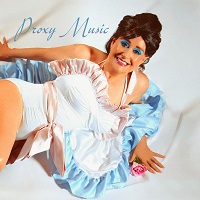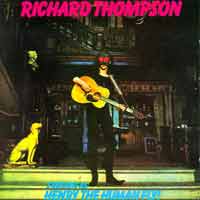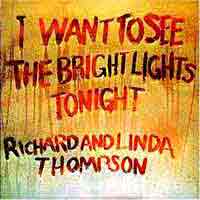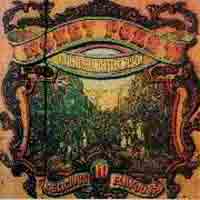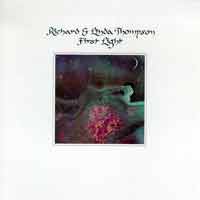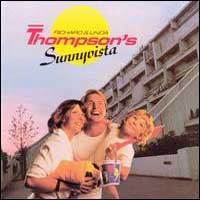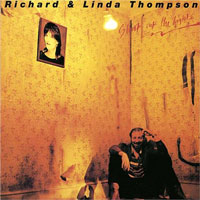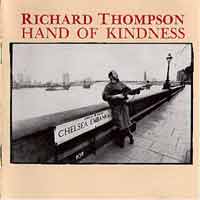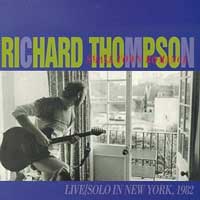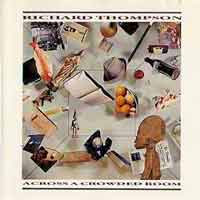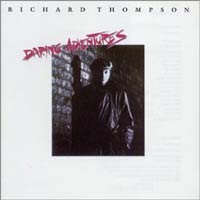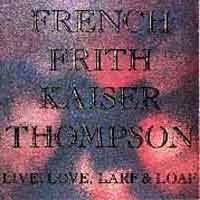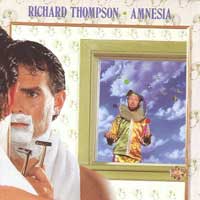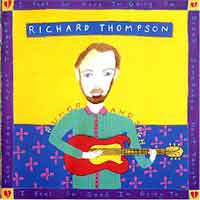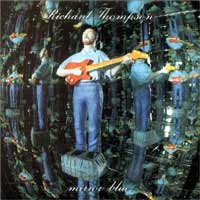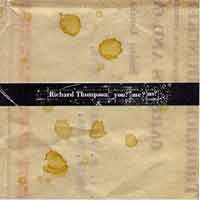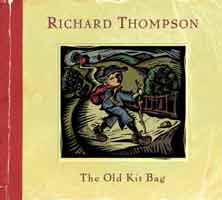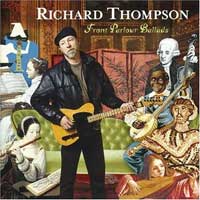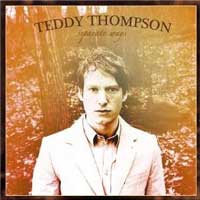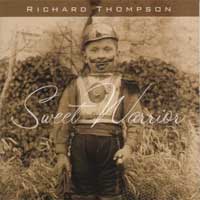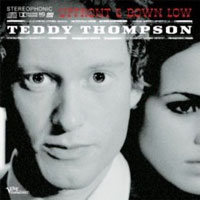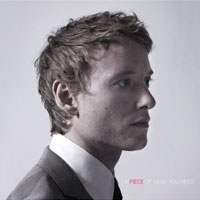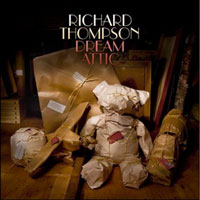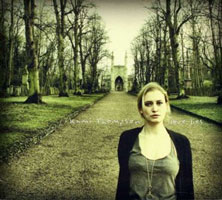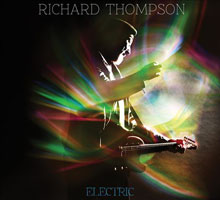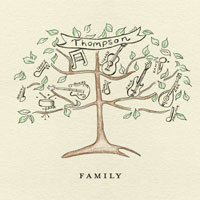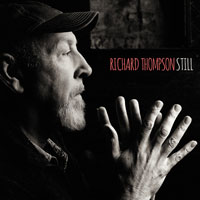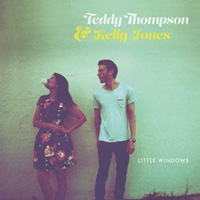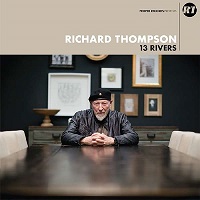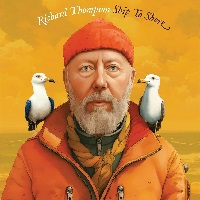Linda´s erstes neues Album seit 17 Jahren. Ihre Krankheit (eine Art megaextremes Lampenfieber) scheint sie überwunden zu haben und so rief sie zu den Aufnahmen – und alle kamen, inklusive ihr Sohn Teddy, Tochter Kamila und Ex-Ehemann Richard Thompson.
(Glitterhouse)
She remains obsessed with the deep British folk music that she and her circle reanimated with the electricity of rock and roll. Like all great folk singers - Sandy Denny in particular, Richard's partner in Fairport Convention in whose shadow she sometimes felt herself to stand - Linda Thompson has an ancient voice, wilting, wounded and wise. She sings with the conviction of an eyewitness of thieves, beggars, drunks, street urchins and circus freaks, spurned lovers and murdering swine, centuries-gone.
The album's lead-off track, "Dear Mary" - co-authored with Teddy, sung with Richard, Teddy and daughter, Kamila, and peppered with Richard's guitar wizardry - delivers a knockout chorus in the unmistakable Thompson manner. To hear Linda's voice in full flower again, after seventeen years of silence, surrounded by her family, is proof positive you can go home again. The song features their mid-register voices locked together, one of the record's recurrent pleasures, also used to great effect when mother and son trade verses on Lal Waterson's "Evona Darling". Thompson's unalloyed passion for "hardcore" folk (her word) yields a chilling re-invention of the "faux" Scottish murder ballad "Nine Stone Rig", to which she added several verses; the murder and its aftermath are recounted with stark, journalistic precision. "Banks of the Clyde", written for her brother Brian, is likewise hardcore, only this time bittersweet, a broken down woman's wish for home. "Paint &Powder Beauty", written with the gifted young songwriter Rufus Wainwright, wanders farthest afield. A stylish, theatrical, 40's-style ballad, the song takes a hard look at an aging call girl from the buyer's point of view. The languid string arrangement by Robert Kirby, who orchestrated Nick Drake's songbook, features a viola solo with an ear to the singer's honeyed register. But the heartwrecker is her own "No Telling", a composition written a cappella, as she does, a love song that relates the redemptive power of a love song using the medium as the message.
The musicians are first rate, chiefly acoustic guitarist John Doyle and bassist Danny Thompson (no relation) in addition to son Teddy. Van Dyke Parks guests on accordion and Hammond B-3 organ; Geoff Muldaur arranged "Miss Murray" for Richard Greene's fiddle and Parks' accordion; there are harmonies by Martha Wainwright and England's current folk princess, former Poozie Kate Rusby. Trad punk fiddler Eliza Carthy lends her spirit to "Weary Life", and Linda reunites with Eliza's father Martin Carthy (they made some demos together in 1970). The album also features Fairport veterans Jerry Donohue (solo on "All I See"), Dave Mattacks (drums) and Dave Pegg (acoustic bass, mandolin). The last of the ten tracks, "Dear Old Man of Mine", is another family affair, only this time the song is clearly about Richard and performed in his absence, with Teddy handling the guitar and their youngest child, Kamila, providing the harmony. Wisdom comes late, dashed dreams yield to time; no hard feelings.
(Rounder)
Linda Thompson's first recording in 17 years is a stunning brace of poetics and grace. For a woman who literally lost her voice for more than a decade due to a stress disorder, Thompson reveals that she is at full strength as a vocalist, and perhaps more importantly, with this recording she clearly establishes herself as a songwriter as well. Recorded in the U.S. and in England, Fashionably Late feels like less of a comeback offering than it does an elegant statement of aesthetic from a talent who, along with Sandy Denny and Jacqui McShee, literally defined these terms for the British folk genre. There are many guests on this ten-song set, including Kate and Joe Rusby; Martin and Eliza Carthy; Van Dyke Parks; Dave Mattacks; Chris Cutler; Dave Pegg; Rufus and Martha Wainwright; Danny Thompson; ex-husband Richard; daughter Kamila Thomspson; and, her prime songwriting collaborator and guitarist, son Teddy Thompson. Produced by Edward Haber, who helped her assemble her retrospective Dreams Fly Away, Fashionably Late is devoid of special effects or studio magic. In stark contrast to One Clear Moment, her first solo effort, this is, primarily, a folk record that harkens back to the recordings that defined her voice without going into the past for material. And it is the voice that defines these songs. Ms. Thompson and/or son Teddy wrote or co-wrote the lion's share of the material here. Songs such as the opener "Dear Mary," offered in a lilting, country-ish vein, illustrate that economy of musical and lyrical language often adds to the emotional power a song is capable of deliver. This track in particular is of interest in that it features a reunion with Richard on guitar and backing vocals, as well as being the first ever track on which the entire family is featured along with bassist Danny Thompson (no relation). The confidence Thompson has, perhaps due in no small part to the appearance of her son at her side, is simply astonishing. In the Scottish murder ballad "Nine Stone Rig," she recounts a tale so chilling and bleak, one would think the murderer had sung it. On "The Banks of the Clyde," which Ms. Thompson wrote for her brother, she recounts with a staggering sense of heartbreak a broken woman's reiterating her life in a letter, and the fervent wish to return home. Lal Waterson's "Evona Darling" is executed with crystalline purpose and majesty, as Linda and Teddy trade verses and Parks accompanies the lone acoustic guitar on accordion. There is humor, too, on "Weary Life," co-written by the Thompsons in which a married woman of some years recounts how being single is the only choice for a woman in the present day. With a sardonic delivery and Eliza Carthy's violin playing a lyrical counterpoint, the irony and wit is both unmistakable and refreshing. One of the album's standout tracks in both quality and originality is "Paint and Powdered Beauty" that Linda Thompson co-wrote with Rufus Wainwright. It's a ballad that, with its lush string arrangement and subtle cast melody, could have been written by Jerome Kern or Sammy Cahn. Martin Carthy's exquisitely chosen chord shapes in counterpoint to the string section are breathtaking. Thompson's ability to carry a song like this, so completely at odds with her forte, is a testament to her virtuosity. Despite the fact that Fashionably Late took literally years to make, it's remarkable sequencing and continuity leave no seams. This is a comeback record to be proud of; it not only sates the appetite of those fans who felt Linda Thompson left the scene too abruptly, but it is also the British folk record that everyone interested in the genre has been waiting such a long time for.
(by Thom Jurek, All Music Guide)
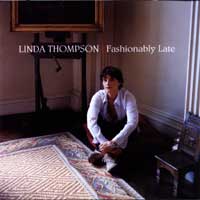
 Plattentipp
Plattentipp 
